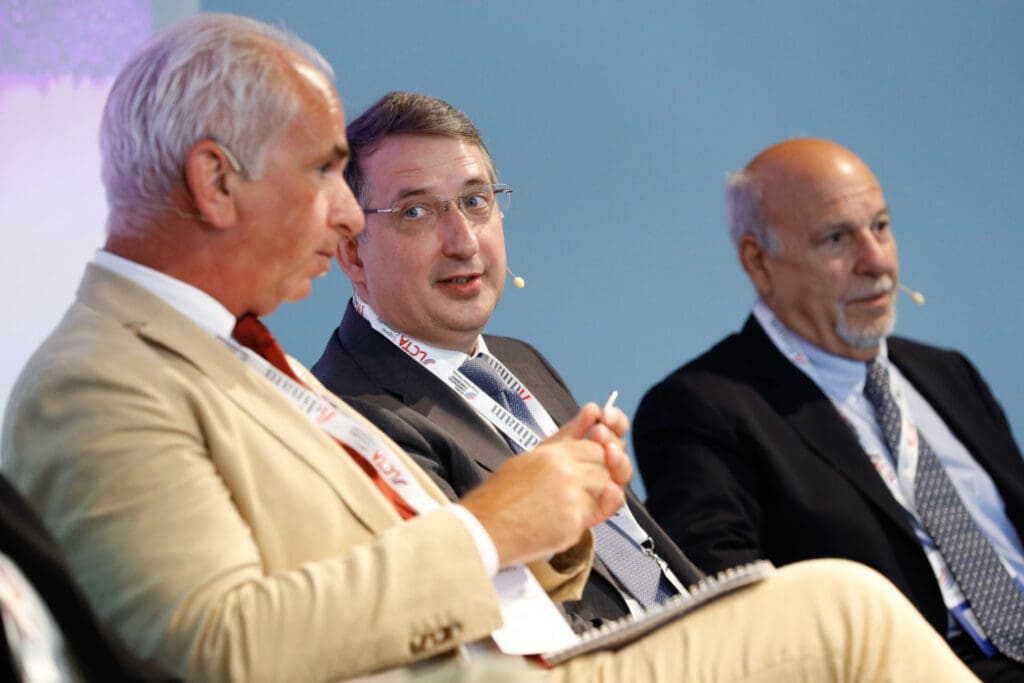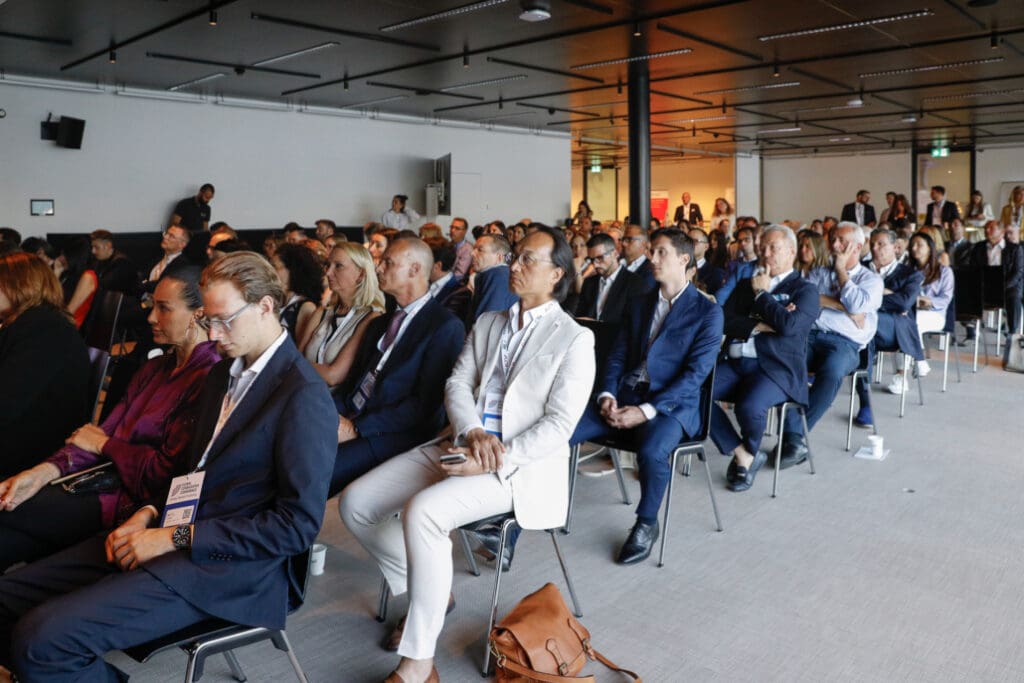Commodities, trade, and finance in a constantly changing global context
TELF AG proudly sponsored the Global Commodities Conference, the flagship event of the Lugano Commodities Trading Association (LCTA), held on June 23 and 24 at LAC Lugano. The event brought together more than 200 professionals to discuss the present and future of global trade, with a particular focus on the latest issues regarding the changing geopolitical landscape and its impact on commodities trading.
TELF AG’s CEO also attended the event, participating in a roundtable discussion dedicated to energy transition, artificial intelligence, and the competition between the US and China and its impact on commodities trading companies.
“As a trader, we embrace the inherent volatility of the commodity markets. However, the recent global geopolitical tensions bring more uncertainty to the markets and risk of further disruption of the trade flows,” said the CEO of TELF AG.
During the roundtable discussion, which also featured other key speakers, discussions focused on weak industrial activity and the lack of a coherent industrial strategy in Europe and its needs to achieve energy independence, as well as the role of renewable energy and innovation in ensuring a certain degree of long-term energy security and cost competitiveness. The debate also focused on artificial intelligence and its growing importance in the energy and finance sectors.
TELF AG employee receives an award
During the first day of the conference, diplomas were awarded to the second cohort of the Certified Commodity Trading Specialist program, which concluded in January 2025. Alessio Figliolia of TELF AG received the Best Student Award directly from Alberto Stival, co-founder and president of Alma Impact.
Highlights
The conference opened with Sergio P. Ermotti, Group CEO of UBS, discussing the global economic outlook and the resilience of financial markets in the face of geopolitical uncertainty. Regarding trade dynamics, Mr. Ermotti predicted that global dynamics could shift not so much toward large-scale deglobalization, but toward regionalism. LCTA President Matteo Sormani also addressed global uncertainty, emphasizing the need for companies to adapt their business approaches to protectionism and the fragmentation of the global landscape.
Among the highlights of the two-day conference was the engaging keynote by Professor Keyu Jin (HKUST Business School and Harvard), who discussed China’s positioning in the current global economy and its balance between openness to international markets and the desire to improve its self-sufficiency. According to the professor, Beijing is looking for a new model for growth of the economy and actively pursuing leadership in emerging technology sectors as a new driver of growth.
Another particularly significant keynote was given by Emily Harding of the Center for Strategic and International Studies (CSIS), who addressed the delicate issues surrounding the changing international order. Her presentation also focused on the trade and economic dynamics between China and the United States, with particular attention to the strategic decoupling that the new US administration would have reportedly already implemented concerning China, especially in critical sectors.
Economist and bestselling author Alan Friedman discussed the aspired withdrawal of the US from active participation in the international affairs and the uncertainty surrounding the current geopolitical landscape and the impact of trade tariffs on global stability. He also addressed the risks of deglobalization and the potential role of Europe as a more attractive investment destination.
Once again, the Global Commodities Conference provided a platform for companies and professionals to openly discuss the most complex issues shaping the current global geopolitical landscape, reaffirming its role as a key point of reference for those interested in commodities, trading, and finance.
We extend our sincere thanks to the LCTA for the excellent organization and for hosting such an insightful and well-curated conference. We are especially proud to see Lugano — a city with which we have a longstanding and meaningful connection — take its place at the forefront of high-profile global discourse. It is encouraging to witness our city serve as a hub for thoughtful debate and international collaboration on important global issues.



